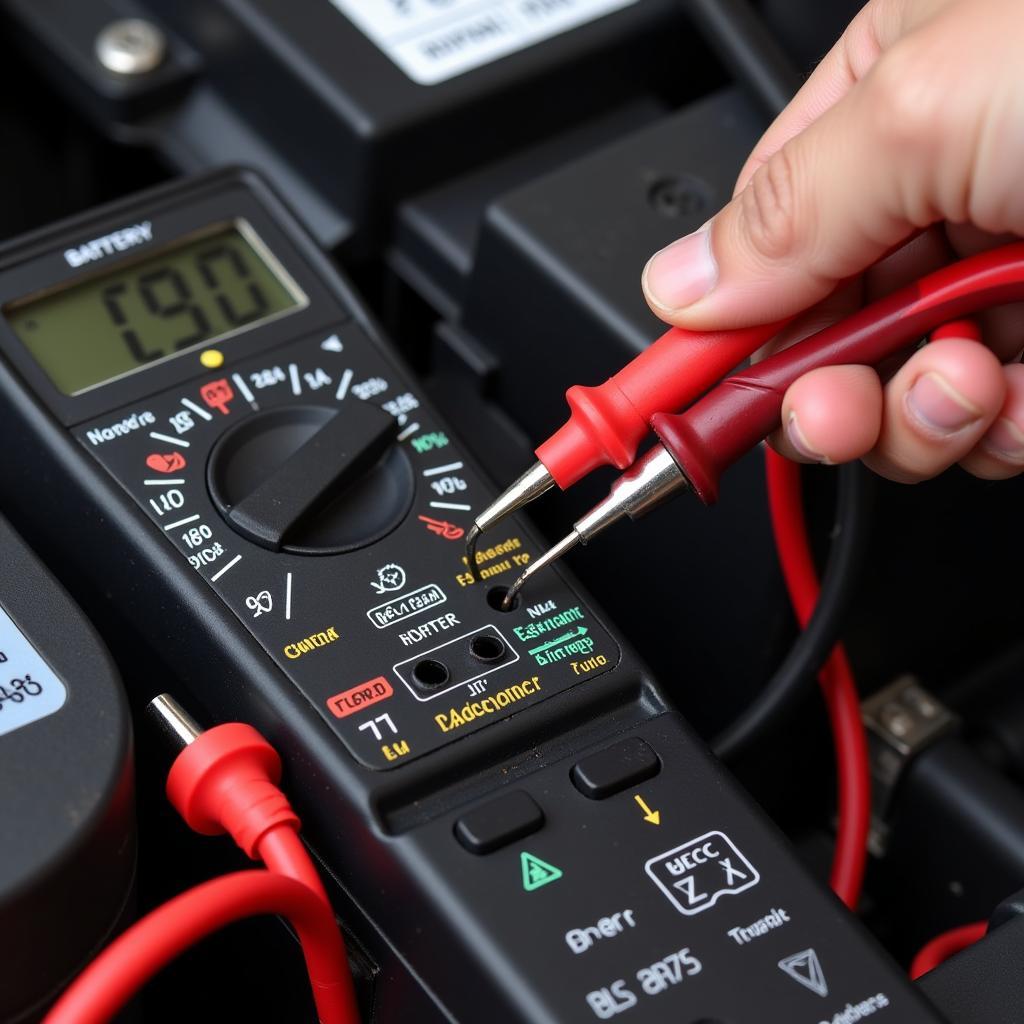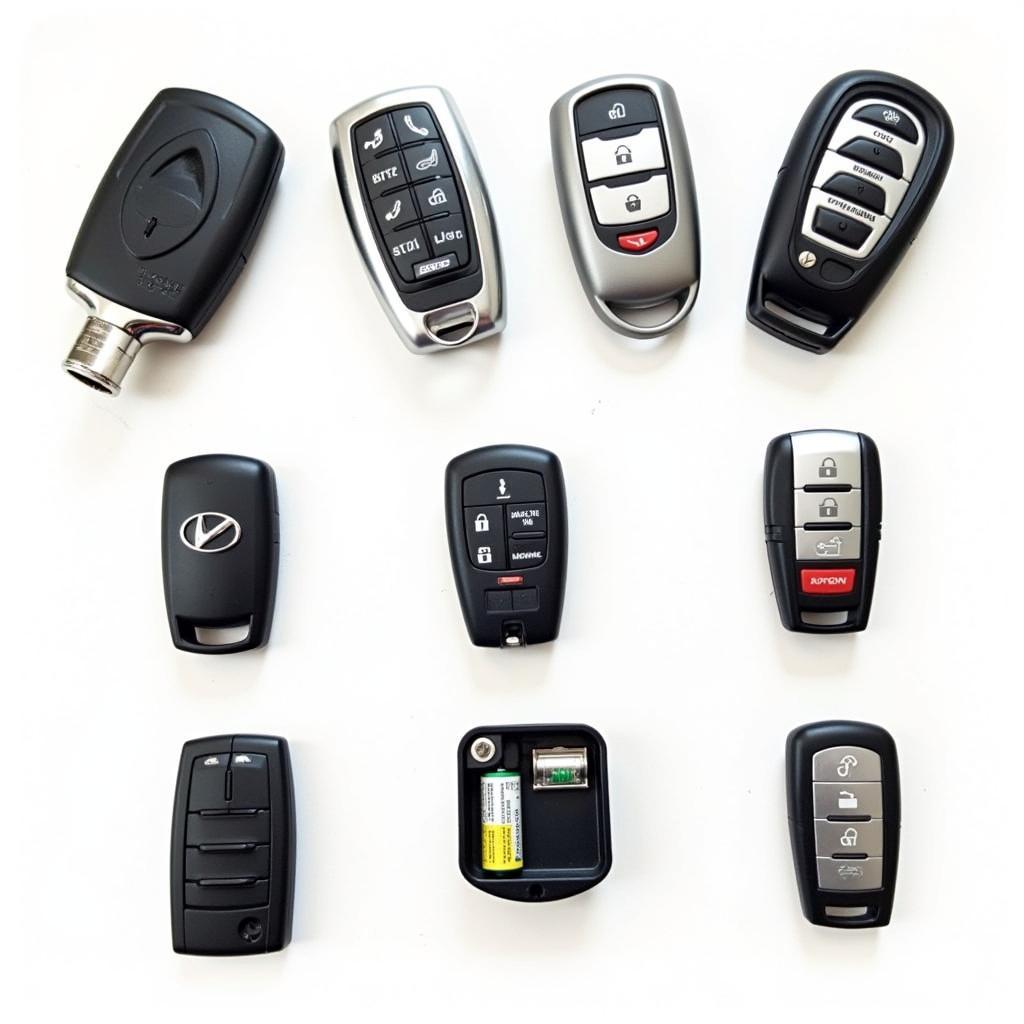A brand new car battery should start your car without a hitch. So, when you experience new car battery problems, it can be incredibly frustrating. This article will delve into common issues, diagnostics, and solutions for dealing with a faulty new car battery, providing you with the knowledge you need to get back on the road. Problems after installing new car battery.
Common New Car Battery Problems
Several issues can arise even with a new battery. These range from simple fixes to more complex problems requiring professional help. Some of the most common problems include slow cranking, clicking sounds when starting, dimming headlights, and the battery dying quickly. Incorrect installation, faulty alternators, and parasitic drains can all contribute to these issues. Understanding the root cause is crucial to implementing the correct solution.
Slow Cranking: Is Your New Battery Failing Already?
Slow cranking is often a telltale sign of a weak battery, even a new one. This means the engine turns over slowly when you try to start the car. While a bad starter can also cause this, a new battery experiencing this issue could point to a manufacturing defect or improper charging before purchase.
Clicking Sounds: A Sign of Low Voltage?
A rapid clicking sound when you turn the key typically indicates low voltage. This can be due to a new battery that wasn’t fully charged before installation or a faulty connection. Checking the battery terminals for corrosion or looseness is a good first step. New battery already dead.
Dimming Headlights: More than Just a Bulb Issue?
Dimming headlights, especially when other electrical components are running, can signify a failing battery. While a new battery shouldn’t exhibit this problem, it’s possible the battery has a defect or the car’s charging system isn’t working correctly.
Battery Dying Quickly: Is Something Draining Your Power?
If your new car battery keeps dying, there’s likely a parasitic drain somewhere in the electrical system. This drain occurs even when the car is off, slowly depleting the battery’s charge. Common culprits include faulty interior lights, aftermarket accessories, or even a malfunctioning alarm system. Aftermarket remote start draining battery.
Diagnosing New Car Battery Problems
Diagnosing new car battery problems involves several steps. Starting with a visual inspection of the battery terminals for corrosion or looseness is important. Then, testing the battery voltage with a multimeter can determine if it’s holding a charge. Finally, having the charging system tested can rule out alternator issues.
Using a Multimeter: A Crucial Diagnostic Tool
A multimeter is essential for testing battery voltage. A fully charged battery should read around 12.6 volts. Lower readings suggest a problem with the battery or the charging system.
 Multimeter Testing New Car Battery
Multimeter Testing New Car Battery
Solving New Car Battery Problems
Once the problem is diagnosed, the solution can range from simple fixes to more involved repairs. Tightening loose connections, cleaning corroded terminals, or fully charging the battery can often resolve the issue. However, if the battery is defective, it might need to be replaced under warranty. If the charging system is faulty, repairs to the alternator or voltage regulator may be necessary.
“A common mistake people make is assuming a new battery is perfect. Always test it after installation and regularly thereafter,” says John Smith, Senior Automotive Electrical Engineer at Acme Auto Electric.
Warranty Considerations: Don’t Void Your Coverage
If you suspect a manufacturing defect, it’s crucial to check the battery’s warranty. Tampering with the battery or improper installation can void the warranty, so always follow the manufacturer’s instructions or seek professional help.
Preventative Measures: Keeping Your New Battery Healthy
Proper maintenance can extend the life of your new battery. Regularly cleaning the battery terminals, ensuring tight connections, and limiting short trips can help prevent issues. “Regularly checking your battery’s voltage can help you identify problems before they become major headaches,” advises Jane Doe, Lead Technician at Auto Solutions Inc. Bad battery or bad starter. If you need professional installation for your car’s electronics, it’s wise to seek out experts. You can easily find qualified professionals by searching online for “who can install car radios near me”. Who can install car radios near me.
Conclusion
New car battery problems can be frustrating, but with proper diagnosis and troubleshooting, they can be resolved. Understanding the common issues, utilizing the right tools, and taking preventative measures can ensure your new battery provides reliable starting power for years to come. Remember, a new battery doesn’t guarantee problem-free operation. Regular checks and maintenance are essential for optimal performance and longevity.

